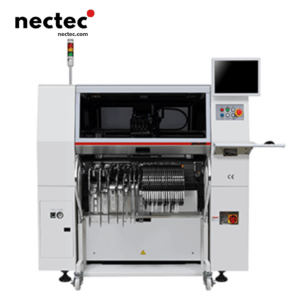Dans l'industrie de la fabrication électronique, qui évolue rapidement, le rôle des cartes de circuits imprimés (PCB) est essentiel. Avec la demande toujours croissante de produits électroniques de haute qualité, les systèmes de convoyage de circuits imprimés sont devenus essentiels pour rationaliser le processus de production. Ce blog se penche sur le monde des Fabricants de convoyeurs de PCBLa Commission européenne a organisé une conférence sur le thème de l'innovation, qui a permis d'explorer les dernières innovations et les tendances du marché qui façonnent cette industrie cruciale.
L'évolution des systèmes de convoyage de circuits imprimés
Au départ, les méthodes de manipulation des circuits imprimés étaient rudimentaires, reposant sur des mouvements manuels et un équipement de base. Cependant, au fur et à mesure que la technologie progressait, les conceptions et les fonctionnalités des systèmes de convoyage de circuits imprimés évoluaient également. Aujourd'hui, les Fabricants de convoyeurs de PCB se concentrent sur le développement de machines qui améliorent la vitesse, l'efficacité et la précision dans la manipulation des PCB.
Le passage des processus manuels aux systèmes de convoyage automatisés a radicalement modifié les flux de production. Les convoyeurs avancés intègrent désormais des caractéristiques telles que des vitesses réglables, des réglages programmables et la compatibilité avec différents types et tailles de circuits imprimés.
Principales innovations en matière de convoyeurs de circuits imprimés
Récemment, plusieurs innovations notables ont vu le jour dans le domaine des systèmes de convoyage de circuits imprimés. Voici quelques-unes des plus importantes :
- Automatisation intelligente : Intégrant les technologies de l'IA et de l'IoT, les convoyeurs de PCB modernes peuvent désormais surveiller les mesures de production en temps réel, ce qui permet de procéder à des ajustements rapides et de minimiser les temps d'arrêt.
- Conceptions modulaires : De nombreux fabricants proposent désormais des systèmes de convoyage modulaires qui permettent une extension et une personnalisation aisées en fonction des besoins de production, ce qui favorise une plus grande flexibilité.
- Efficacité énergétique : Face à l'augmentation des coûts énergétiques, les fabricants s'attachent à développer des convoyeurs de circuits imprimés qui consomment moins d'énergie tout en conservant des performances optimales.
- Caractéristiques ergonomiques : Des conceptions améliorées qui privilégient le confort et la sécurité des utilisateurs sont intégrées dans les systèmes de convoyage des PCB afin de créer un environnement de travail plus productif.
Tendances du marché qui stimulent la demande de convoyeurs pour circuits imprimés
L'industrie des circuits imprimés est en constante évolution, marquée par plusieurs tendances clés qui stimulent la demande de systèmes de convoyage avancés :
- Miniaturisation de l'électronique : Les gadgets devenant de plus en plus petits, la nécessité d'une manipulation précise des circuits imprimés dans des espaces compacts s'est accrue, poussant les fabricants vers des solutions de convoyage plus innovantes.
- Initiatives en matière de développement durable : Les pratiques respectueuses de l'environnement deviennent une préoccupation majeure, ce qui conduit les fabricants à investir dans des conceptions de convoyeurs durables qui minimisent les déchets.
- La mondialisation des chaînes d'approvisionnement : L'intensification de la collaboration mondiale dans le domaine de la fabrication de produits électroniques a accru la demande de systèmes de convoyage de circuits imprimés fiables et rapides.
Choisir le bon fabricant de convoyeurs pour circuits imprimés
Compte tenu du grand nombre d'options disponibles, le choix du bon fabricant de convoyeurs pour circuits imprimés peut s'avérer décourageant. Voici quelques facteurs à prendre en compte pour faire votre choix :
1. Expérience et expertise
Recherchez des fabricants qui ont fait leurs preuves en matière de technologie de convoyage de circuits imprimés. L'expérience permet souvent de mieux comprendre les défis uniques auxquels est confronté le secteur de la production de circuits imprimés.
2. Options de personnalisation
Chaque ligne de production est différente ; c'est pourquoi un fabricant qui propose des solutions personnalisables pouvant être adaptées à des besoins de production spécifiques se distingue souvent.
3. Services d'assistance et de maintenance
Les services d'assistance et de maintenance après l'achat sont essentiels. Choisissez un fabricant qui offre un service clientèle et un service après-vente solides pour garantir l'efficacité prolongée de l'équipement.
4. Innovations et engagement en matière de R&D
Choisissez des fabricants qui s'engagent activement dans la recherche et le développement. Leur engagement en faveur de l'innovation se reflète souvent dans la qualité de leurs produits.
Perspectives d'avenir de la fabrication de convoyeurs pour circuits imprimés
L'avenir de la fabrication de convoyeurs de circuits imprimés est promis à des avancées transformatrices. Les principaux domaines d'intérêt sont les suivants
- Intégration de l'IA : L'intégration de l'intelligence artificielle dans les systèmes de convoyage devrait permettre d'optimiser davantage les performances, en assurant une maintenance prédictive et en minimisant les interruptions de production.
- Adaptabilité à l'industrie 4.0 : À mesure que les industries évoluent vers l'industrie 4.0, les convoyeurs de BPC devront devenir de plus en plus adaptables, facilitant une communication transparente entre les machines et les systèmes.
- Caractéristiques de sécurité renforcées : Les conceptions futures incluront probablement des mesures de sécurité plus avancées afin d'adhérer à des réglementations plus strictes et de garantir la sécurité des travailleurs.
Conclusion
Le paysage de la fabrication de circuits imprimés évolue et les fabricants doivent suivre le rythme des avancées technologiques et des demandes du marché. En adoptant les innovations et en comprenant les tendances de l'industrie, les entreprises peuvent optimiser leurs processus de production, ce qui se traduit en fin de compte par des produits de meilleure qualité et une plus grande satisfaction des clients.








